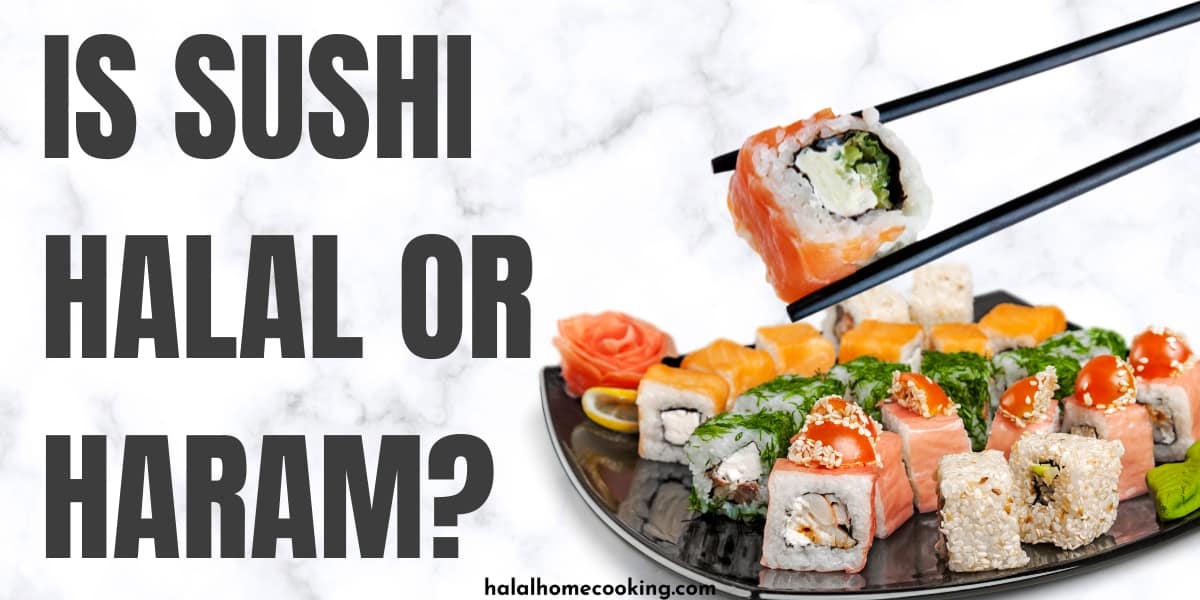If you are a fan of Japanese cuisine, chances are you have tried sushi at least once in your life. Sushi has gained popularity all around the world, with sushi restaurants popping up on every corner. From well-known chains like Sushi King to local favorites like Asakusa Sushi Ken, there is no shortage of options when it comes to satisfying your cravings for this delicious dish.
However, for those who follow Islamic dietary laws and seek halal options when dining out, the question arises – is sushi halal? The answer may not be as straightforward as you think. While sushi itself does not inherently contain any haram (forbidden) ingredients such as pork or alcohol, certain aspects of its preparation can potentially pose concerns for those seeking truly halal options.
One key consideration is the use of raw fish in sushi. While many types of fish are permissible under Islamic law, it is essential to ensure that the fish used in a particular restaurant’s sushi dishes adhere to the necessary standards for being considered halal. Similarly, ingredients such as mirin (a rice wine) and rice vinegar commonly used in making vinegared rice should be examined carefully to determine their alcohol content.
Furthermore, some may argue that even if the individual ingredients themselves are halal-certified or deemed acceptable by an Islamic scholar, cross-contamination might occur during food preparation. This concern arises from sharing utensils and surfaces with non-halal ingredients or improper handling practices within a restaurant setting.
Is Sushi Halal in Sunni?
Sushi can be considered halal in Sunni Islam as long as it meets certain criteria. To be halal, sushi must only use halal ingredients and preparation methods. This means that the fish used must be not deemed haram (forbidden) according to Islamic dietary law, and the rice and vinegar used should also not contain any haram ingredients such as alcohol or any other forbidden substances.
Therefore, it is important for Muslims who want to eat sushi to ensure they are eating at a certified halal sushi restaurant or one that has a valid halal certificate. Some well-known sushi chains like Sushi King and Genki Sushi have obtained certification from Islamic scholars to prove their adherence to Islamic guidelines.
Is Sushi Halal in Shia?
Sushi, which is a Japanese dish consisting of vinegared rice and various ingredients such as raw fish or seafood, is generally considered halal for Shia Muslims. However, the halal status of sushi can depend on the specific ingredients used and how they are prepared. It is important to ensure that the fish or seafood used in sushi is properly sourced from halal sources.
Additionally, some sushi restaurants may use haram ingredients such as mirin (a type of rice wine) or soy sauce that contains alcohol content, so it’s crucial to check if they have a certified Halal certificate before consuming their sushi. Overall, Shia Muslims can enjoy sushi when it meets the requirements of Islamic dietary law and includes only halal ingredients.
Is Sushi Halal in Hanafi?
According to the Hanafi school of thought in Islamic law, sushi can be considered halal if certain conditions are met. The main concern with sushi is the raw fish, as consuming raw fish is prohibited by some scholars.
However, if the fish used is a type that is permissible to eat (such as salmon or tuna) and it has been properly handled and prepared according to halal requirements, then it can be consumed. Other ingredients such as sushi rice and soy sauce are typically considered halal. Muslims need to ensure that they dine at certified halal sushi restaurants or inquire about the halal status of a particular dish before eating it.

